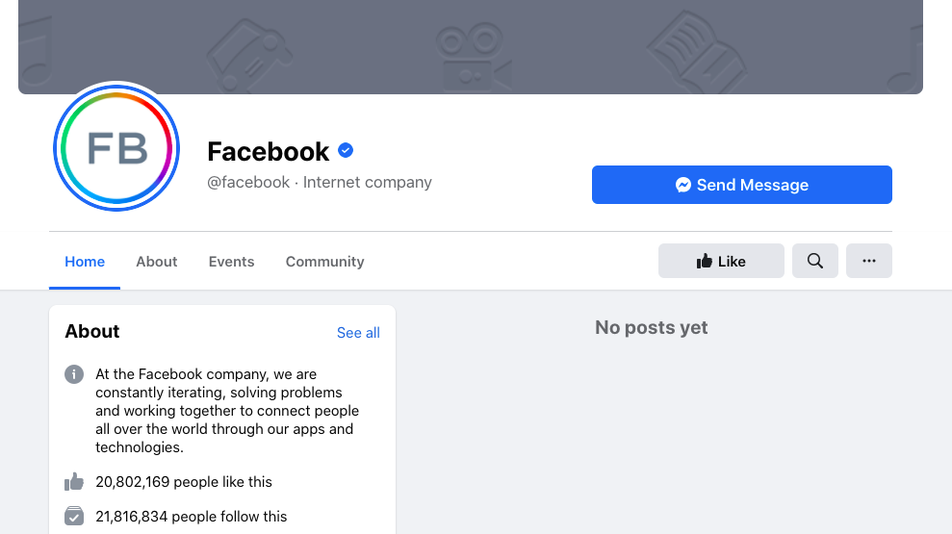Australians woke up on Thursday morning to find their news feeds, post history, and favourite news outlets’ pages scrubbed of all links to … well, news.
Facebook followed through on its threat to ban the sharing of news links by and to Australian users, as the country’s government moves closer to forcing big tech companies to pay to link media outlets’ content.
The proposed news media bargaining code would see tech giants like Google and Facebook having to pay media companies for content that appears on their platforms. While Google initially threatened to pull out of Australia over the law, which has bipartisan support, it instead struck deals with dozens of platforms to pay them for content via its News Showcase. Facebook, in contrast, has chosen to take its bat and ball and go home like a big sulky baby.
But the ban’s not just affecting local, national, and international news outlets.
It’s also affected government websites like the Bureau of Meteorology, state governments, and health agencies; satirical news sites, like the Onion-esque larrikin “local news” The Betoota Advocate; organisations like the Australian Council of Trade Unions; and even literary journals.
It’s not just big news orgs bearing the brunt of the News ban by @Facebook. Smaller Indigenous and community media orgs are too. Vital for getting info out about COVID, telecommunications outages and emergencies to communities. pic.twitter.com/3v5FfFkCn9
— Sarah Collard (@Sarah_Collard_) February 17, 2021
Hilariously, even Facebook’s own Facebook page is blocked from sharing news about Facebook on Facebook.

We’re good, actually.
Image: facebook
Less hilariously, pages for community support organizations, like the Hobart Women’s Shelter in the Tasmanian state capital, have been wiped of links to news and resources, leaving only the page’s basic information.

Image: facebook
The loss of a key distribution platform for emergency information is especially concerning. While Australians in areas affected by extreme weather and impending natural disasters can check sources of reliable information directly, blocking government-run weather and emergency services from sending out information to Facebook users could hinder the effective distribution of that info.
Facebook has removed the @BOM_au page amidst the shutdown of Australian news pages, and on a day with flooding rain in QLD and catastrophic fire danger in WA. Warnings need to get to as wide an audience as possible as a matter of safety. Shocking.
— Nate Byrne (@SciNate) February 17, 2021
Another fun thing you’ve just lost to Facebook: emergency information for your local community. Local ABC pages were part of the emergency broadcasting effort during Black Summer, sharing road closure info to get people back from the coast safely. Not any more. pic.twitter.com/hdo5EPybHl
— Anna Vidot (@AnnaVidot) February 17, 2021
Politicians are affected, too. In Western Australia, where early voting for the March 13 state election begins in mere days, the state Premier Mark McGowan’s page has not been scrubbed — but opposition leader Zak Kirkup’s has.
Facebook has banned Opposition leader Zak Kirkup, but not Premier Mark McGowan – four days before early voting starts in WA’s State election! pic.twitter.com/OcXTsCjHTG
— Peter Law (@PeterJohnLaw) February 17, 2021
The “blanket” ban is, in fact, full of holes. For example, the state health department’s Facebook pages for South Australia and the Australian Capital Territory have been scrubbed, but I successfully posted a link to a News page from the ACT Health website from my personal Facebook account. Meanwhile, Facebook-hosted videos and images are still available on the pages for the Western Australia and New South Wales state health departments (though it’s impossible to tell whether there were news posts that have now been yanked).
For this Australian user, Facebook’s usability has already declined this morning, with searches and link clicks leading to timeouts and error pages both on the main feed and when searching for news outlets.
Mashable reached out to Facebook for clarification on the process used to determine what counts as news for the purposes of the ban — and whether it’s currently working to refine its approach, or if the chaos created means the ban’s working exactly as intended.
UPDATE: Feb. 18, 2021, 8:44 a.m. AWST: A Facebook spokesperson told Mashable: “Government Pages should not be impacted by today’s announcement. The actions we’re taking are focused on restricting publishers and people in Australia from sharing or viewing Australian and international news content. As the law does not provide clear guidance on the definition of news content, we have taken a broad definition in order to respect the law as drafted. However, we will reverse any Pages that are inadvertently impacted.”
UPDATE: Feb. 18, 2021, 11:55 a.m. AWST Several of the pages shown above have had their content restored, including the Bureau of Meteorology, Facebook’s own page, the ACTU and SA Health. Many remain blank, including Hobart Women’s Shelter, Zak Kirkup, and the Indigenous media outlets shown above.
